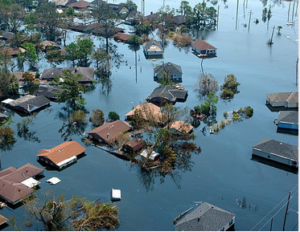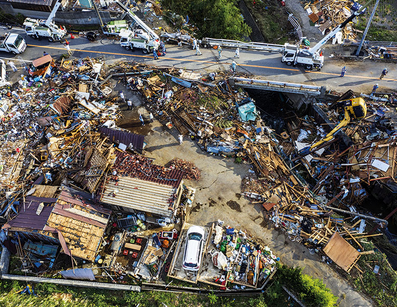Natural catastrophes including typhoons, hurricanes, floods, and earthquakes cause significant damage and appear to be harmful to the economy. The impact of these natural disasters can reach the stage of life and property loss and affect the economy too. For businesses or individuals who have companies, it can be difficult to rise again after such an impact. The destruction of homes, businesses, and infrastructure is a huge loss which can require large amounts of money for people to get back on their feet. The economic consequences of natural disasters can be both immediate and long-term. Natural disasters have affected the economy leading to financial crisis. The article will explore how natural disasters have impacted the economy.

Who Covers Natural Disaster Costs?
Billions of dollars are lost during the period of natural disasters. Natural catastrophes generally result in a combination of diverse parties bearing some of the financial burden. Many times, local, state, and federal governments allot money from their budgets to pay for the costs associated with catastrophe response, recovery, and rebuilding initiatives. Through policies that cover property damage and loss, insurance firms also play a vital role in giving financial aid to people and businesses harmed by natural disasters. Additionally, non-profits and humanitarian organizations frequently raise money to support disaster relief efforts and offer assistance.
Natural Disasters impact the Industries
Natural catastrophes can also have a lasting impact on businesses and industries. Some of the industries include agriculture, construction, energy, Insurance, Manufacturing, Retail, and Tourism among others. Natural catastrophes affect these industries differently. For instance, crop yields may be greatly impacted by a severe drought or flood in an area that is primarily dependent on agriculture, which could result in fewer profits for agricultural businesses. Additionally, the tourism industry will be affected in such a way that they will not be able to attract tourists. Tourists are also a source of income. Similarly, if a hurricane strikes a coastal region, insurance companies would see a spike in claims, which would hurt their bottom line.
Difficult in attracting investors
Furthermore, natural disasters affect the attraction of investors in a country. Investors and the financial markets may be significantly impacted by natural disasters. First off, a natural disaster’s early aftermath can lower investor confidence and increase market volatility. Uncertainty and a decline in economic activity may result from the destruction of infrastructure, the loss of life, and business disruption. As a result, investors might become more cautious and risk-averse, which could lead to a decrease in stock prices.
Supply chain and distribution
Moreover, the economy can be affected by damaged roads, bridges, airports, and other transportation infrastructure. The impact of natural disasters on the supply chain and distribution can hurt the economy. Natural catastrophes can also affect a company’s supply chain and production capability. There can also be a shortage of labor since some people die during natural disasters. Transport setbacks, power outages, and factory damage can cause production and distribution delays that have an impact on businesses’ financial performance and their capacity to meet client demand.
Conclusion
In conclusion, natural disasters can have a destructive impact on the economy. The long-term effects can be far-reaching and require significant recovery efforts. Businesses, governments, and communities must come together to support and rebuild in the face of such challenges. The recovery process can take years, and some businesses may never fully recover. The economic impact can vary depending on the severity and duration of the event, as well as the preparedness and resilience of the affected region. Overall, natural catastrophe can create uncertainty, disrupt economic activity, and impact specific industries and companies. Investors need to carefully assess the potential risks and vulnerabilities associated with natural disasters when making investment decisions.

